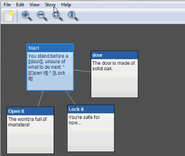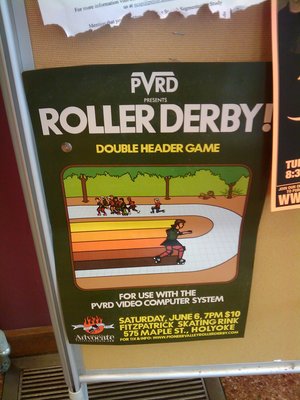
I got to hear Brenda Brathwaite speak about her recent work yesterday. As you know if you’re read the Escapist article about her board games, she’s been developing a series of non-digital games about very serious subjects: The middle passage, Cromwell’s invasion of Ireland, and the Holocaust – so far. I also got to talk with her and some others about Train (upper right) at the GAMBIT Game Lab and got to play against her there in Siochan Leat (lower left). The latter, also known as “The Irish Game,” is a very playable game, although in my limited experience, it seems like it may have too many symmetries. I tried to play for a draw (since that seemed like a “fair” outcome), forgot about a rule and fell behind, and then caught up again to draw the game in the end. Since Train was “spoiled” for me and others, we talked about the play that had taken place in other sessions, and ended up having a very interesting discussion. I have no problem with games that rely on the players being naive, and which can be played only once, as long as that one experience is valuable. The verbal game Max and Nora is like this, and the way that some people play the party game Psychiatrist is similar, also. The latter game can easily be generalized, though, and can be endless fun (and insightful) if it is. Train is about something quite different: the drive for efficiency that obscures the ethics of one’s action. It is meant to provoke substantial conversation, and it does that well, helping us think about the nature of play and the design of games as well as about an important historical episode.
This is a preview of
Playing the Irish Game, Talking About Train
.
Read the full post.

 He’s a finalist in the Game and Development competition. He is showcasing his game ALTERNEX in Egypt! Follow the
He’s a finalist in the Game and Development competition. He is showcasing his game ALTERNEX in Egypt! Follow the 





